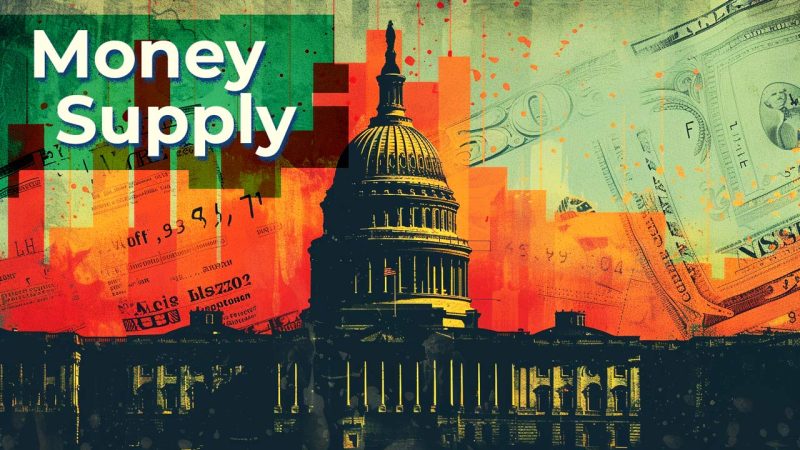“Now, if we are even going to survive as a species, then we need to get the hell out of here”
– Laura Roslin, President of the Twelve Colonies, Battlestar Galactica
Watching Battlestar Galactica as an economist was especially intense. Where do they get food and water? What happens when they run out of toilet paper? How do they ration? Battlestar Galactica tells the story of Commander Adama and the Galactica’s travels through space with robots in hot pursuit. The scale of the resource issues they had to deal with was outrageous. Oh yea, and then there were the Cylons, they were a problem too. If you haven’t watched Battlestar Galactica, I highly recommend it.
This article was originally published by Byte Size Economics.
As Earthlings, we are also on a spaceship flying through space and contend with the conundrum of not having enough resources. Albeit at a very different scale. It’s not just sci-fi. The spaceship economy idea suggests that we live in a closed economy with limited resources, and we all need to work together to survive and thrive as best we can. The implication being that what we have on Earth is all there is and we need to use our resources wisely.
What follows is that endless growth and resource use on Earth as we see today is not feasible. Something’s got to give. Our standard of living? The planet? If the planet fails will we survive? What about the human population? Maybe we advance our way out of resource scarcity and develop a circular economy, recycling resources into new things. Or perhaps the economic endgame is that we move beyond Earth and conquer the stars. These options are the primary focus of this post.
What could the economic endgame for climate change look like?
The options below are not mutually exclusive and some look like transition states. The list is not exhaustive. No scenario avoids climate change entirely given we are already affected by it.
Our standard of living falls and we live within our environmental means
This option is a step backward to take a step forward. When we live beyond Earth’s means we are borrowing from the future to pay for our standard of living today. If we reduce our standard of living such that we live within Earth’s environmental limits, we could live sustainably and avoid the worst of climate change. Probably not a popular option reflecting that there may need to be steep cuts in consumption eg fewer cars, less air travel, smaller houses, fewer material products, less meat, that sort of thing. On the plus side, we survive as a species.
Population implosion to sustainable levels
The other side of this coin is a population implosion such that humanity’s environmental impact on the planet is reduced. With fewer people on the planet, we would consume fewer resources all else equal, and reduce the toll we take on the planet. I’ve put this option on the list but it’s not sensible. There is no reasonable way to have a controlled population reduction of that magnitude. Though there are options for reducing the rate of growth (e.g. family planning and education). If there is a reduction in population, it is probably due to catastrophic environmental impacts, or declining birth rates.
The planet fails and all life suffers
Increasingly this looks like the most probable route. Under this option, humanity fails to sufficiently reduce emissions and the planet heats up well above the safe level of 2°C. The result is that humanity and other creatures suffer from catastrophic environmental events that massively compromise our economy and quality of life. Many people and animals will die with the planet potentially becoming uninhabitable. How bad the impact is and whether we survive is anyone’s guess. We must avoid this doomsday scenario.
Circular economy and efficient technology
The progressive route is that our economy evolves into a “circular economy” where what we use is repurposed into other stuff. Under this scenario, we still suffer from climate change but avoid the most dramatic effects by keeping the planet inhabitable. Waste and pollution become a thing of the past as we design products for long-term reuse. We transition to full use of renewables (eg solar and wind) for our energy needs. This would reduce our impact on the planet as we would require fewer resources. With any luck, it would help reverse the impacts of climate change in time.
Conquer the stars
Is the economic end game of humanity to head to the stars? If you believe there is little chance we will adequately address climate change, this option is probably the only one that actually solves the problem. If we advance far enough to develop advanced space travel and leave Earth, climate change ceases to be an issue. We would miss her blue waters and snowy mountains, but if Earth becomes unlivable, that’s a small price to pay. There could be Earth-like habitable planets that serve our needs.
If this sounds far-fetched, that’s because it is. The notion of traveling to another Earth-like planet is ridiculous. It certainly won’t happen in our lifetimes – as cool as that would be. However, with significant long-term investment in space travel, this may become reality one day. Could it happen before it’s too late? I don’t know. But to be clear, it is the only option on this list that fully solves climate change and resource scarcity.
Developing solutions to climate change is an urgent priority
Why do we need to think about this at all? The matter of factness with which I describe the options above does not represent the urgency with which we need to address climate change. The evidence for how quickly we are wrecking the planet is overwhelming. Our spaceship is overheating, and it’s getting worse.
Some of the options above are probably transition states. A pause in air travel could be considered as a stepping stone while we develop technology that allows sustainable consumption. Some of these options are steps back to take a step forward, like a reduction in consumption. Which option do you want?
Either way, coordinated and decisive action is imperative because the emissions of even a few large countries are enough to tip the scale. I am not naive about how hard coordination is when some countries are wealthy and others have little. Unfortunately, what we see so far is inadequate moves towards a circular economy, reductions in consumption of some products, and the development of more energy-efficient technology. What’s the backup plan?





